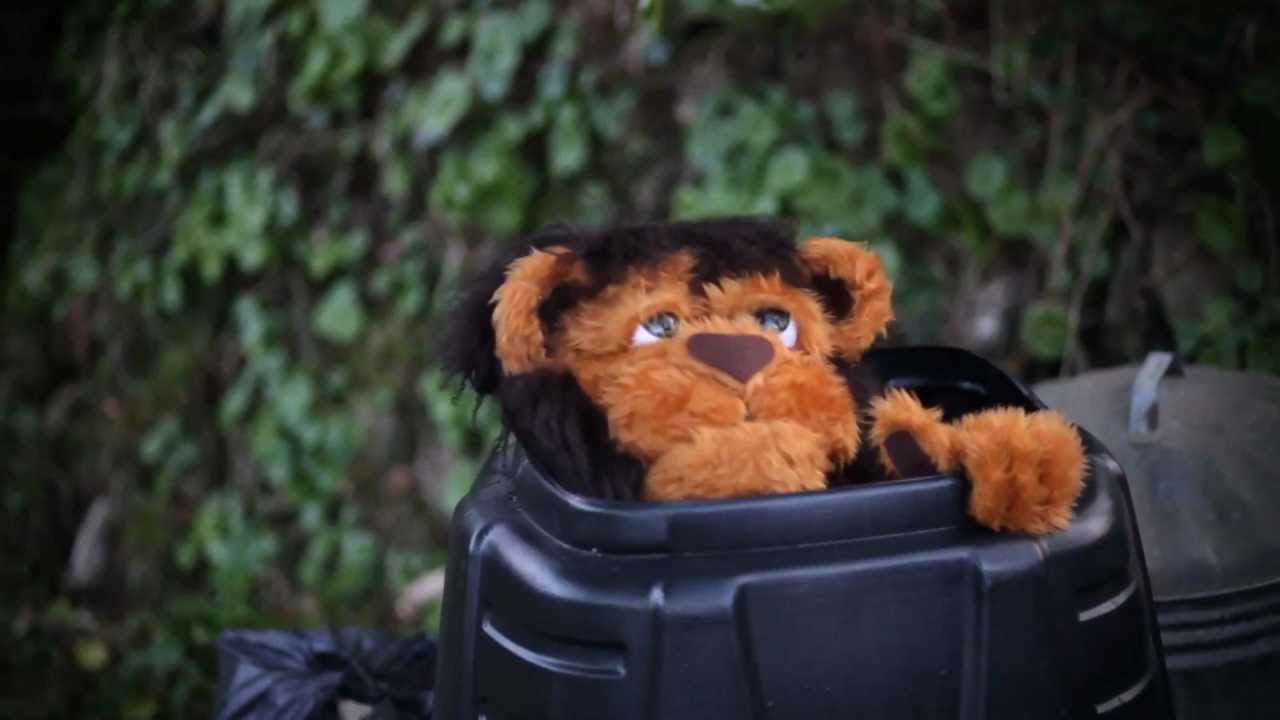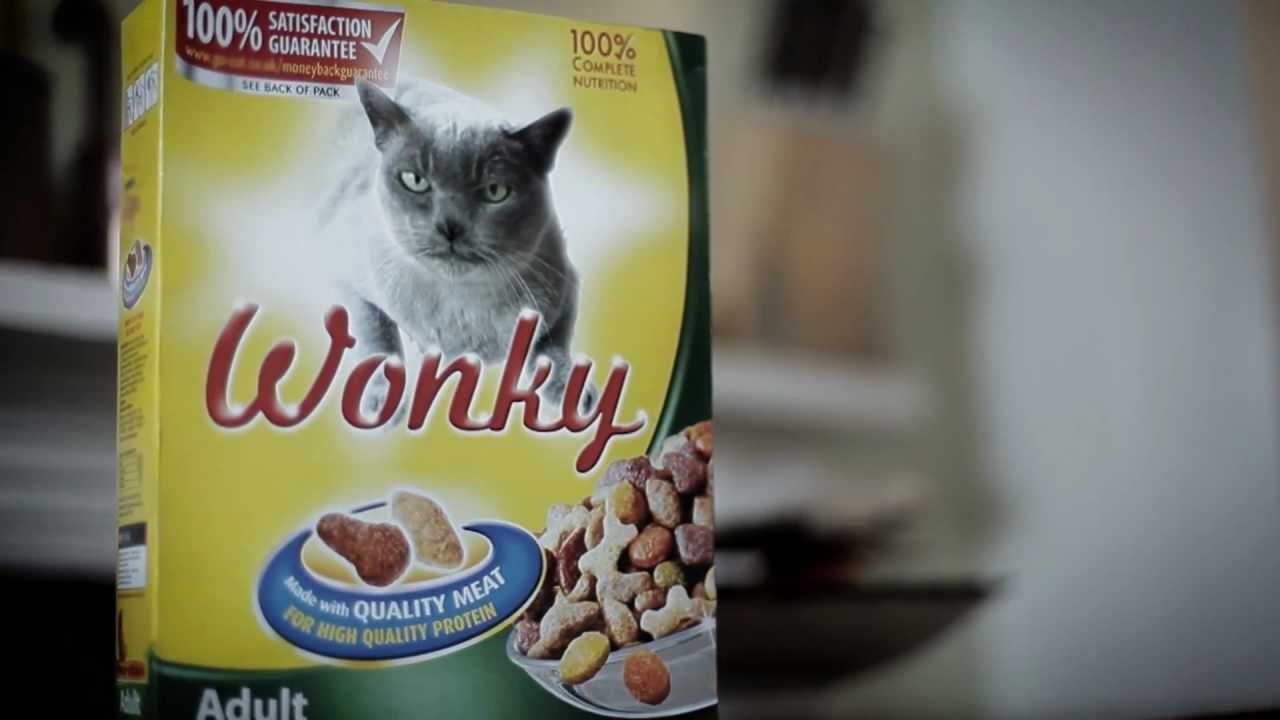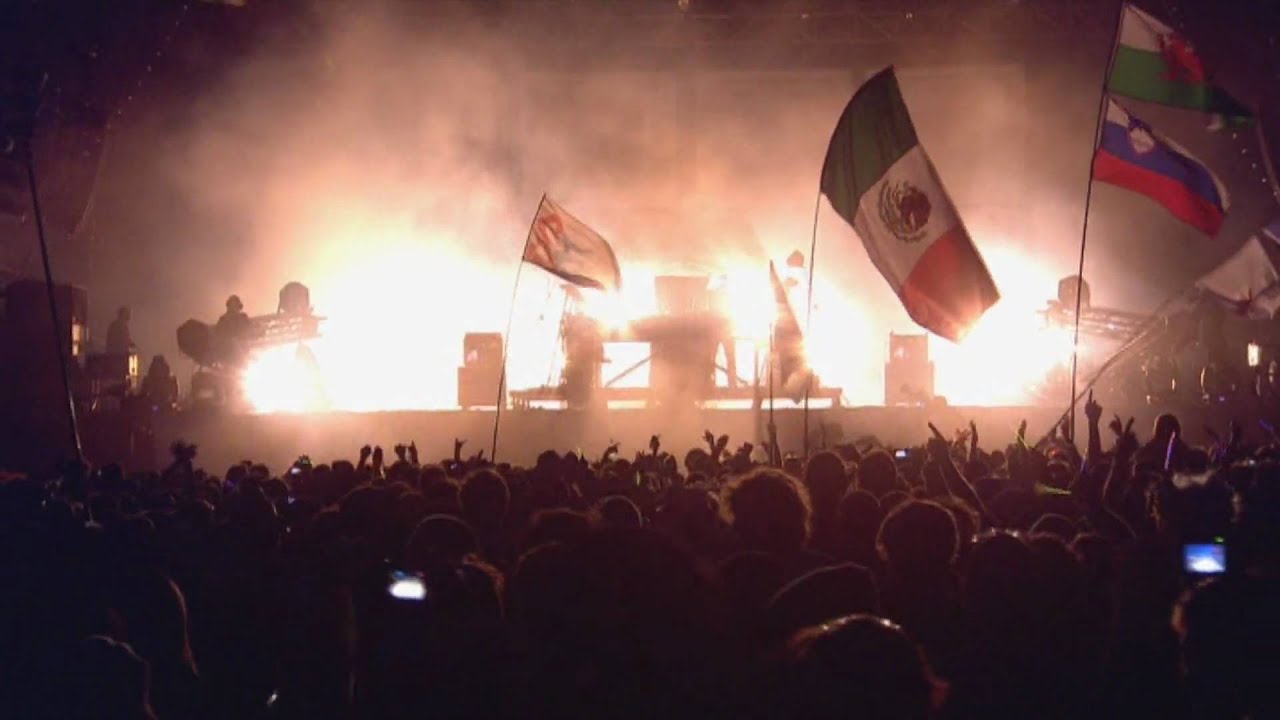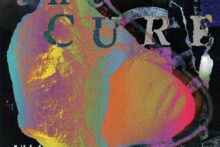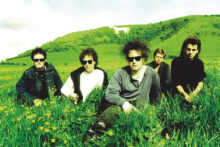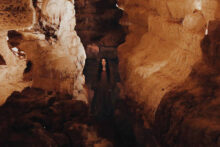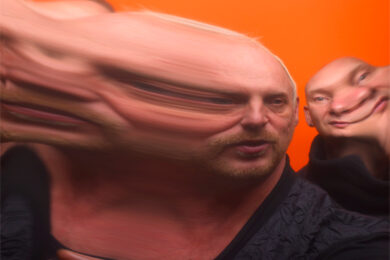"I can’t shake the feeling we’re inside a giant Faberge egg." Through the stage door, past the tie-and-collar security, left down the long corridor that goes round the Royal Albert Hall in a circle – hello, it’s orbital, is it not – is a long, thin room, half-MFI chic, half-spotlit mirror bling. In it, we find Paul Hartnoll – he of the ovate observations – having just wolfed down his dinner. Next to him sits Phil, now with hair – he has hair! – dyed or faded white-blonde, bright tattoos dancing up his arms.
It’s two hours before Orbital play the Royal Albert Hall, and the two brothers from Sevenoaks are sitting on a sofa, slightly agog. Not because it’s the first time they’ve played here – that happened in 1996, the year ‘The Box’ got to no. 11 in the singles charts. Perhaps it’s because not many duos in their 40s – Paul is 44 next month, Phil is 48 – can sell out a Victorian dome in Kensington Gore.
OK, some baton-wavers, or cello-bowers, might. These two play techno.
After a 20th anniversary tour in 2009, and a few fanfare-like festival appearances – notably one with Matt "Dr Who" Smith at last year’s Glastonbury – Orbital are back, properly, with a new album, Wonky. Their first in eight years, it’s everything a long-time fan would want it to be: extravagantly euphoric, mountainous with melody, lit up with tiny samples that you can’t quite place (I find out afterwards that ‘One Big Moment”s timely opening quote – "love is wise, hatred is foolish, in this world which is getting more and more closely interconnected…" – is from a BBC interview with Bertrand Russell from 1959) and contemporary contributions by Lady Leshurr (the title track) and Zola Jesus (‘New France’), neither of which sound like nods to fashion, but a natural step in the long, luminous line of Hartnoll collaborators, from Alison Goldfrapp to Sparks.
The title – Wonky – is not a nod to the time-signature-warping micro-genre either, but to a word that says something about them. "We’ve never really fitted in," says Paul by way of explanation, a little later; the word suggests to him how they’ve been always been just out of step. But in many ways, the band that started out listening to Punk and Crass and the Anti-Nowhere League in the ’80s, before going sideways with their synthesisers and software and rave, have always fitted in. From 1989’s ‘Chime’ (recorded on their father’s cassette deck, later their first top 20 hit) and 1991’s Green and 1993’s Brown albums (known as 1 and 2 just like Kraftwerk, their true electropop forefathers) Orbital brought big tunes to techno, purity to their production values, and carved a glistening arc between late ’80s dance culture to their imperial mid-’90s. At that time – by popular myth the era when club culture started to slide under an avalanche of Britpop – they had two top five albums (1994’s pulverising Snivilisation, 1995’s electrifying In Sides) and played a Glastonbury set that is still talked about in the fashion of a religious reawakening. In 1997, they had a no. 3 hit with a song called ‘Satan’. Its riff, if you don’t know it, went "Satan, Satan, Satan, Satan"; it was only held off the top spot by Toni Braxton’s ‘Think Twice’ and The Spice Girls’ ‘2 Become 1’.
After our 20 minutes together in the Albert Hall’s albumen, Orbital play 100 minutes of head-glowingly heavenly music in its yolk. They are lit from the stage, as always, by projections that summon up space and science, flashing, dashing, strobes, and the brothers’ light-up glasses. And as always, hard dance gets lifted by sweet, joyous moments. ‘Halcyon’ is tailed – as it has been in the past – by Belinda Carlisle’s ‘Heaven Is A Place On Earth’; ‘Are We Here’ swirls into The Carpenters’ ‘Calling Occupants Of Interplanetary Craft’. And the new tracks – the melancholic swell of ‘Never’, the pummelling rhythms of ‘Where Is This Going?’ – fit in the set seamlessly, without gaps, without joins. These tracks are true new stars in the brothers’ lovely galaxy; evidence of new life in Orbital’s expanding universe.
How does one prepare for a gig at the Royal Albert Hall?
Phil Hartnoll: Just trying to relax [looks towards the door] It’s just absolutely massive. Like Jailhouse Rock isn’t it!
Paul Hartnoll: I had a nice relaxing morning at home with the kids. Then we did an interview with Dave Pearce – which is nice. [shakes head] It feels funny [being here], because we did it back in the day. It felt naughty when we did it then. Different. All a bit [widens eyes], ‘Ooh lets do it there!’
But that’s before dance music felt much more part of the establishment, a recognised part of British pop history, I’m guessing…
Paul: Yeah, it’s not that naughty any more. I mean, I was watching Horrible Histories at the Proms this morning on the TV with the children, going, ‘Ooh, that’s where Dad’s going later. Look at the daft stuff they get up to there – I’m off to do the same!’
Where a ton of 30 and 40-somethings will be watching you who’ve left their kids with the babysitters too. A lot has changed in dance music in the last 22 years – the way it has gone mainstream, got disseminated, distributed, filtered. What position do you see yourself occupying now? Are you elder statesmen? Or hoary old gits?
Paul: [shrugs] We don’t think of our position.
Phil: We don’t reflect. We just think if we’re still filling halls, then that’s the most important thing.
Paul: [turns to Phil] It’s impossible to know, isn’t it?
Phil: If people are still filling a dancefloor – we go by that, you know. We must be doing something right. Tracks like ‘Satan’ and ‘Chime’ still having an effect…
Paul: Filling festival dancefloors at our age – it’s a crazy mixed-up world.
Is it still important to you to be relevant now?
Paul: Yes, but we don’t think of it that way. Now just feels like a long straight line from then. Thing is, you’re always the centre of your own field, whatever you’re doing. So, as a band, this is the most important thing happening in the world tonight – it’s all just a matter of perspective. So when people talk about dance culture, how it’s fitted in, or ask, well, what do you think about that time when dance music wasn’t very popular? I go, when was that? To me, it’s always been. What about when Britpop took over? It took over?
That’s the myth that’s spouted now. Which obviously isn’t true. The mid-90s was as much about you playing Glastonbury and drum & bass and jungle as it was about ‘Country House’ and ‘Common People’.
Paul: That’s right. It just happened in parallel.
You ‘split’ in 2004, after The Blue Album, and a euphoric ten-years-on set at Glastonbury. But explain this to me: how do brothers split up?
Paul: Very happily!
Phil: Yeah. We’d been living in each other’s pockets for…
Paul: 15 years.
Phil: Or since we were born. [both burst out laughing]
Paul: Yeah! So we just behaved like most brothers and saw each other three times a year for a few years instead.
Did that feel weird?
Paul: No – I was really pleased to get away from him! [Phil shakes head] You know, I didn’t want to do it any more. That was the whole point. I went off and travelled the world for a year with my daughter and my girlfriend at the time. The only reason that didn’t go on is that is six weeks into it our mum got dignosed with cancer and given nine months to live, so I came back. And a whole different life appeared.
I’m sorry to hear that.
Paul: [shrugs gently] That’s life, isn’t it. But I was glad to get away at the start. I wasn’t going to see anyone I knew. I was looking forward to getting a fresh perspective. There were no thoughts of, well, I’m not going to do this for [counts fingers] three years. How do you know how long you’re not going to want to do it? I just need to stop doing this now.
Phil, you went and formed a band, Long Range, with Nick Smith, and built on your career as electro and breakbeat DJ. Paul, you made a solo album, The Ideal Condition, inspired by your love of film soundtracks; you worked with an orchestra on it, and even got Robert Smith to sing one track, ‘Please’. As brothers, you’ve always said you’re two sides of the same coin… But is that still true?
Together: Yes!
Paul: I’m the geek who sits in a room with analogue synthesisers for hours and hours and hours, and he’s the rebel. He’s this one. [puts hands in the air]
Phil: Still!
Paul: And you put the two together and it’s like Donny and Marie. [both laugh]
Which one’s which?
Paul: I’m a little bit country! That makes me Marie.
Phil: [nods towards Paul and smiles] Yeah! I’m not Donny, though!
So what properly brought you back together? A longing to work together again, the fraternal blood… or something else?
Phil: Really practically, it was The Big Chill getting us back together for our 20 year anniversary, and us building a tour around it, which just went from strength to strength. The reception we got was so encouraging, we were really enjoying it… So after a year and half, playing all these old tracks, we thought, shit, we’d better try and write some new stuff to put into the set.
Paul: And that was that. So we decided to get together last January and do some new stuff. And we did right through ’til November – eleven months.
Does anything bother you about electronic music now? Has anything changed that you don’t like?
Paul: Not really. [thinks] Well, yeah. There is a lot of self-indulgent noodling around with no definition. The thing is, we like a good tune. And I like focus. I don’t like blurry music. Even Brian Eno, the ambient stuff, it’s very much in focus. There’s a set of clear ideas there, no fumbling about. I think in the electronic community now, there’s lot of almost-music. It’s nearly good. A bit, ooh, that’s kind of a nice idea, but that’s that. Look, there’s no tune, and those drums aren’t clever – they’re just out of time. I mean, there’s a lot of people experimenting with time signatures, and don’t get me wrong, if people enjoy listening to it, great. But some experiments don’t work, that’s all I’m saying.
Which do?
Paul: I mean, some of my favourite experimentalists are Autechre. Sometimes I like them, sometimes I don’t, but I love the fact they keep pushing to find new ways of trying to do music. They’re quite focussed still, and that’s what’s important. There’s lots of mediocre stuff out there, though… Sometimes I’ll read something about something meant to be cutting edge, and I get really excited, rush out, and think it’s biggest pile of crap ever.
Naming any names?
Paul: I’m not going to! You know what, I can’t name half of them, can’t pronounce them! I’d rather mention good people out there like Ulrich Schnauss – he likes a good tune, you can spot his stuff a mile off. And Jon Hopkins is another great person. And Plaid!
Phil: Yeah, Plaid! Music that does something that gets you here.
What’s most important to you, as musicians, in 2012? Is it making music for people to dance to?
Paul: No. [shakes head] We don’t make music for people to dance to. We make music to move people emotionally. I don’t care if there’s no drums. [leans forward] Like tonight there’s huge sections with no drums going on, but hopefully there’s a rhythm and a tension and an emotion and then it’s slam… the drums are in, then that’s the icing on the cake, and there’s the rhythm too – brilliant! That’s what I like. That’s what music should do. I mean, I could listen to a piece of pop music that’s perfectly constructed, but if it’s not moved me in any way, I feel like I’ve wasted time, it’s just irritating, just noise in my ears. For me, you want to hear something and just go ohhhhh! That’s what I’ve always loved, what we’ve always tried to do. And if it doesn’t do that, you know what? It’s not working.
What feeling do you want to bring out?
Paul: I want to feel the same way as I did when I heard ‘Tears Of A Clown’, the Beat’s version, when I was young. The first time I heard that, straightaway it was imprinted on my mind, this great emotional stamp of music – it became piece of me. It never left me. [Phil nods in agreement] I want to do that. I want to be able to do that.
Wonky is bold, optimistic, very you, but very now, too. Did you have any great plans about what it should do – other than what you’ve said – or what it should say?
Phil: We wanted it to be bold, really.
Paul: It’s very upbeat, but it’s got different flavours. I think ‘Distractions’ is going for a melancholy vibe. I think ‘Wonky’ is going for, almost going for what Two-Tone had, this raw aggression… I don’t know why that is. But to me, it’s got that – very raw and very primal.
You’ve pushed the videos too. ‘Wonky’ features Matthew Horne being freaked out – and finally run over – by a demonic cat.
Phil: I love that. We were worried about how the cats’ mouths would work, but it’s fantastic. We’d heard Matt Horne’s a big fan of ours, so we thought, great.
And then on ‘New France’, there’s a toy bear who sneaks away from the children who look after him at night, goes out clubbing, falls asleep pissed on a bench, and gets put in a bin…
Paul: Yeah, that upsets people! [both brothers laugh] It’s funny, innit?
Any reason there’s an animal thing going on?
Paul: Not really. [both laugh again]
There’s also two nods to your past on Wonky. ‘Beelzedub’ is ‘Satan’ slowed down, with its atmospherics brought closer to dubstep, as is recognised in its title. And ‘Stringy Acid’ is surely a nod to Derrick May – or your early days.
Paul: ‘Stringy Acid’ is something we did 22 years ago, actually, the same time as ‘Chime’. We wanted to do something with it then. And I’ve always had it in my mind to get it out, and finally it seemed to fit.
Phil: As for ‘Beelzedub’… we’ve been working on forever.
Paul: ‘Satan’ keeps coming back to us! [laughs] But it’s still a work in progress, an ongoing thing. It’s changed so many times over the years.
‘One Big Moment’ is a classic set-opening Orbital call-to-arms – overlaid vocal samples, and a pure, perfect pop line. I want to know where you got the samples from…
Paul: I can’t tell you! We tried to clear them. We went through the motions, as always, hit so many brick walls. That always happens. It does you in. But you end up not clearing things. And I’d rather not tell where they came from, because one day [the next day, funnily enough] you’ll work it out, and go ahhhh! And that’s part of the fun.
What music has inspired you in the last few years?
Phil: For me, just white labels, as I DJ a lot. I don’t buy albums any more. [shrugs] Just don’t!
Paul: I’ve been listening a lot to Joanna Newsom. Kate Bush, The Unthanks, Emily Portman – this great young folk singer. [Talks about her album, The Glamoury] It’s quite odd, full of twisted folk fairytales and it’s brilliant; it actually scares my children, they can’t listen to it… I like this melancholic, Wicker Man version of folk music. I like folk musicians who’ve got one foot in the traditional world, like The Unthanks, but they’re still quite forward-looking.
Is that a world you’d like to get more involved in?
Paul: I think about doing that kind of thing all the time. A friend of mine from Brighton, Leanne Hall, a singer-songwriter leaning towards folk… I did an album with her based on her songs, her singing, and me producing. Chopping up the sounds, doing strange things with it… I want to do more of that.
Phil: We’ve always loved female vocalists, though, haven’t we? I blame The Cocteau Twins. It’s what Liz Fraser did to us! [shivers] But we like female rappers too – Missy Elliott, yeah. Like Lady Leshurr on the new album, she’s very good.
Paul: We’re sucking the blood of new artists! Gaining more power, we are!
I hear you supported PiL at the recent Record Store launch day and bottled out of asking John Lydon to do something with you.
Paul: [laughs] Sort of. That was mental… We were just DJing to a brick wall! But it’d be great to do something with him, yeah. [thinks] I tend to think collaborators should only be brought in when a song that needs something, though – then you should think about who you might want. As in, ‘This needs something gothic, so let’s go and find someone does that… Oh, this Zola Jesus, definitely, she’s ideal. On ‘Wonky’, we need a rap, but it has to be a female rap to contrast with the bass, we need something shiny on top – lets ask Lady Leshurr.’ But obviously you earmark people in. I’d love to work with Rob Smith again. And every time we do a record I try and ask Kate Bush at least once.
Really? Has she ever replied?
Paul: No. [laughs] I’m getting close to being a stalker. But one day, she’ll just have to give in. Alright then! Sing into a microphone for five minutes, Kate! Hello? Hello!
After 22 years in the music business, how do you see it today?
Paul: These days, you try and plan to make your money doing concerts, and the records are there promote concerts. When we started it was the other way round. Which is good fun in a way, you know? After 22 years, it’s really nice for everything to be turned on its head. [smiles] But writing is still my favourite favourite favouritest thing. Nothing beats rubbing your eyes coming out of the studio going, yes, we got that.
Phil: [looks around] Although I quite like it here.
Orbital’s new album, Wonky, is out now on ACP Recordings


